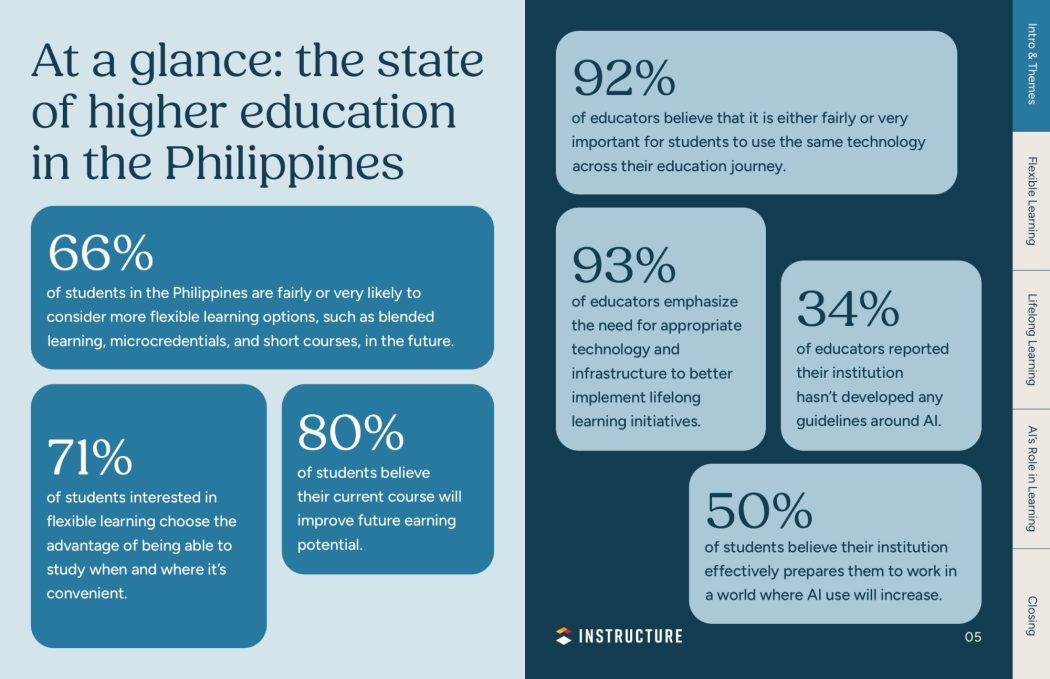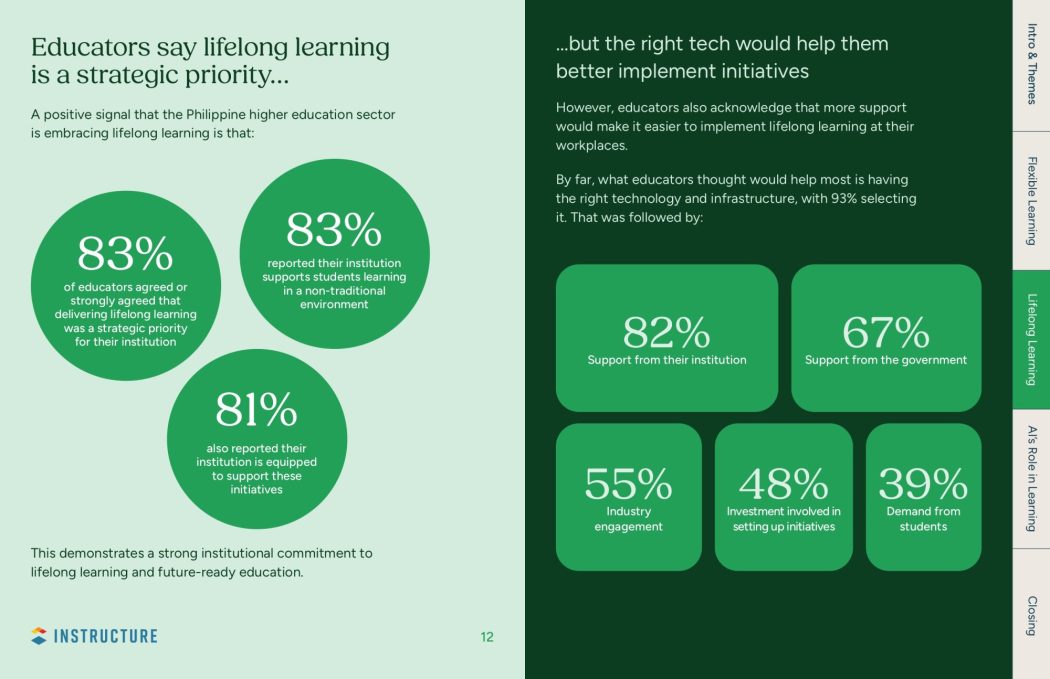
The demand for lifelong learning opportunities in the Philippines is rapidly increasing. However, meeting this demand requires appropriate technology and infrastructure, according to the 2025 State of Higher Education — Philippines report.
The report found that 83% of educators in the country consider lifelong learning a strategic priority for their institutions, highlighting its growing importance in today’s fast-evolving world.
Despite the strong commitment to lifelong learning, the Instructure report found that 93% of surveyed educators agreed that increased support, along with the right technology and infrastructure, would significantly ease the implementation of lifelong learning initiatives.
The report, which surveyed 107 educators from higher education institutions and 312 students, was conducted by Times Higher Education and Instructure, the leading learning ecosystem and maker of Canvas, the learning management system (LMS) used by top-ranked universities worldwide and leading local universities, such as De La Salle University, University of Santo Tomas, and Ateneo de Manila University.
“The growing focus on lifelong learning is a direct response to the fast pace of change in both the job market and technology. This shift is crucial in ensuring students are equipped with the necessary skills to thrive throughout their careers,” said Harrison Kelly, Managing Director for APAC at Instructure. “We are seeing a demand for adaptable learning paths that align with the needs of working professionals, and educational institutions must evolve to meet these demands.”
The report also revealed that 80% of students believe their current course will improve their future earning potential, with 88% of educators and students confident that higher education equips students with the skills needed for employment.

Technology’s Role in Supporting Lifelong Learning
With 83% of institutions supporting students in non-traditional learning environments, and educators recognizing lifelong learning as a strategic priority, hybrid learning models, blending face-to-face and online education are becoming more prevalent to accommodate diverse learning needs.
The report found that while 66% of students still favor face-to-face learning, nearly half (42%) are leaning toward hybrid models, reflecting a demand for flexibility. However, for hybrid learning to be effective, investment in digital infrastructure is crucial to ensure learning remains accessible and resilient to disruptions, such as natural disasters and other environmental or social challenges.
The report also highlights the growing role of artificial intelligence (AI) in education, with 71% of educators using AI to create learning materials, 65% leveraging it for designing quizzes and assignments, and 56% incorporating AI to personalize learning experiences.
Students also embrace AI tools, with 81% believing AI can help them save time. They primarily use AI for text generation (63%), translating text (58%), enhancing and editing their writing (62%), helping explain concepts they don’t fully understand (55%), and summarizing relevant articles (52%).
“As the focus on developing a skills-first culture, supported by a lifelong learning approach and ethical use of AI in education, continues to grow, we can expect Philippine institutions to adopt more flexible, technology-driven approaches that meet the evolving needs of both educators and students, turning learning into opportunities at any stage of their lives,” Kelly said.
Policy initiatives supporting lifelong learning
Senator Joel Villanueva has echoed the need for systemic support for lifelong learning in a recent push for Senate Bill No. 2960, or the Lifelong Learning Development Framework Act, which aims to foster a culture of continuous learning among Filipinos. The bill proposes the creation of “Learning Cities” and “Learning Municipalities” to empower local governments to develop tailored educational programs. It also seeks to enhance micro-credentialing initiatives and strengthen the Philippine Credit Transfer System (PCTS) to ensure that various learning pathways are recognized and valued.
As the Philippines continues to adapt to the demands of the 21st century, its focus on lifelong learning and flexible education pathways promises to empower students and educators alike, equipping them with the tools to thrive in a rapidly changing world of work.
To learn more and access the full report here.

